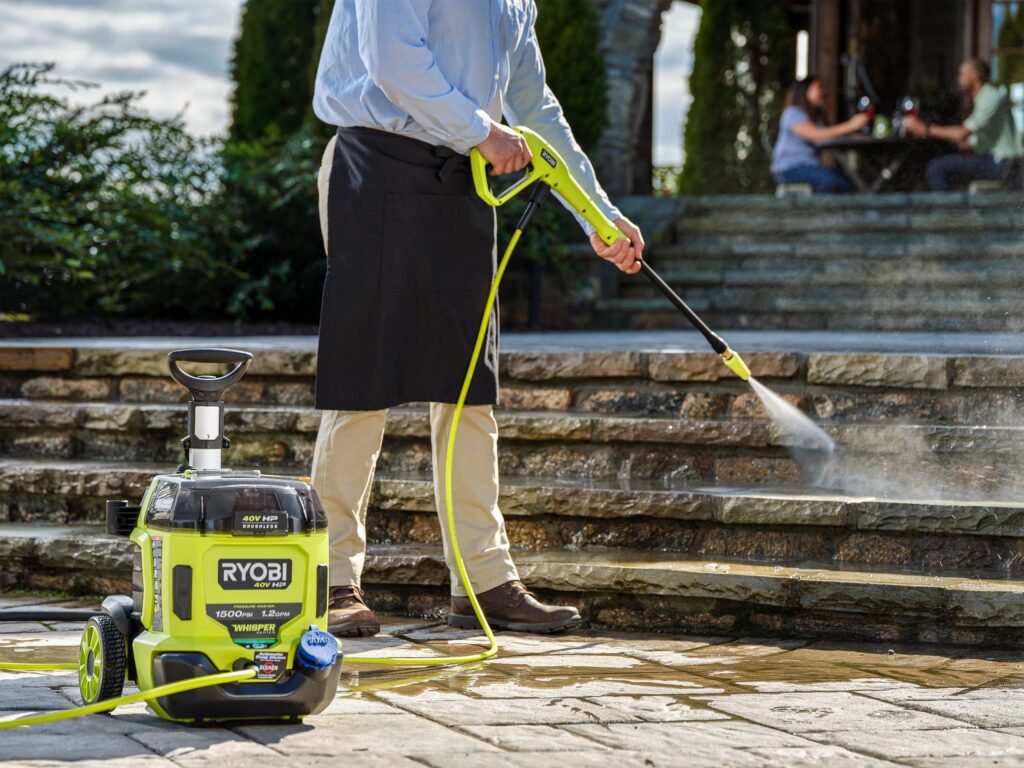In the realm of outdoor cleaning, few tools wield as much power and versatility as pressure washers. Among the myriad options available, Ryobi stands out as a trusted name, renowned for its commitment to quality and innovation. With a diverse range of models tailored to various needs, Ryobi pressure washers have earned a reputation for efficiency, durability, and user-friendliness. In this comprehensive guide, we delve into the world of Ryobi pressure washers, exploring their features, benefits, and applications, to help you make an informed decision for your cleaning endeavors.
Understanding Pressure Washers
Before diving into the specifics of Ryobi pressure washers, it’s essential to grasp the fundamental principles behind these machines. Pressure washers utilize high-pressure water streams to remove dirt, grime, and debris from surfaces effectively. They offer a significant advantage over traditional cleaning methods, such as scrubbing with brushes or using chemical cleaners, by harnessing the power of water pressure to achieve superior results in less time.
Key Features of Ryobi Pressure Washers
Ryobi offers a diverse range of pressure washers, each tailored to meet different cleaning requirements. From compact electric models suitable for household tasks to robust gas-powered units designed for heavy-duty applications, Ryobi has something for everyone. Here are some key features commonly found in Ryobi pressure washers:
Versatility: Ryobi pressure washers come with a variety of nozzle attachments and adjustable pressure settings, allowing users to customize the spray pattern and intensity according to the task at hand. Whether you’re blasting away stubborn stains from concrete driveways or delicately cleaning outdoor furniture, Ryobi pressure washers offer the versatility needed to tackle a wide range of cleaning jobs.
Power Source Options: Ryobi offers both electric and gas-powered pressure washers, catering to different preferences and requirements. Electric models are ideal for indoor use and smaller outdoor tasks, thanks to their quiet operation and ease of maintenance. On the other hand, gas-powered units provide greater mobility and higher pressure output, making them suitable for larger outdoor areas and tougher cleaning challenges.
Durability: Built to withstand the rigors of regular use, Ryobi pressure washers boast robust construction and high-quality components. From sturdy frames to durable hoses and reliable engines, Ryobi ensures that their pressure washers deliver long-lasting performance even in demanding environments.
User-Friendly Design: Ryobi prioritizes user convenience and ease of operation in the design of their pressure washers. Features such as onboard storage for accessories, ergonomic handles, and quick-connect fittings make setup and use hassle-free, allowing users to focus on the task at hand without unnecessary distractions.
Popular Models and Their Applications
Ryobi offers a wide range of pressure washer models, each catering to specific cleaning needs and preferences. Here are some popular Ryobi pressure washers and their recommended applications:
Ryobi 1,600 PSI Electric Pressure Washer: This compact and lightweight electric pressure washer is perfect for light-duty cleaning tasks around the home, such as washing cars, cleaning outdoor furniture, and sprucing up patios and decks.
Ryobi 3,000 PSI Gas Pressure Washer: With its powerful gas engine and high-pressure output, this model is designed for more demanding cleaning jobs, including stripping paint, removing graffiti, and cleaning large outdoor surfaces like driveways and sidewalks.
Ryobi 2,300 PSI Brushless Electric Pressure Washer: Combining the convenience of electric power with the performance of a brushless motor, this model delivers consistent power and efficiency for a variety of residential cleaning tasks, from washing windows to cleaning gutters.
Ryobi 2,800 PSI Gas Pressure Washer with Honda Engine: Featuring a reliable Honda engine and robust design, this gas-powered pressure washer is built to handle tough cleaning challenges with ease, making it ideal for professional contractors and homeowners tackling extensive outdoor cleaning projects.
Maintenance Tips for Longevity
To ensure optimal performance and longevity of your Ryobi pressure washer, proper maintenance is essential. Here are some maintenance tips to keep your pressure washer in top condition:
1- Regularly inspect and clean the intake filter to prevent debris from clogging the pump and reducing performance.
2- Check for any leaks or damage to hoses, fittings, and seals, and replace them as needed to prevent water wastage and maintain pressure consistency.
3- Flush the system with clean water after each use to remove any detergent or debris residue that could cause clogging or corrosion over time.
4- Store your pressure washer in a clean, dry environment away from extreme temperatures and direct sunlight to prevent damage to components and prolong its lifespan.
Conclusion
Ryobi pressure washers offer a powerful and versatile solution for all your outdoor cleaning needs. With a wide range of models to choose from, customizable features, and robust construction, Ryobi ensures that users can tackle any cleaning challenge with confidence and efficiency. By understanding the key features, applications, and maintenance tips outlined in this guide, you can unleash the full potential of your Ryobi pressure washer and enjoy sparkling clean surfaces year-round.







